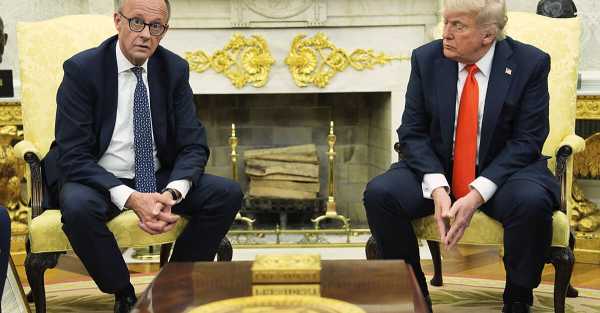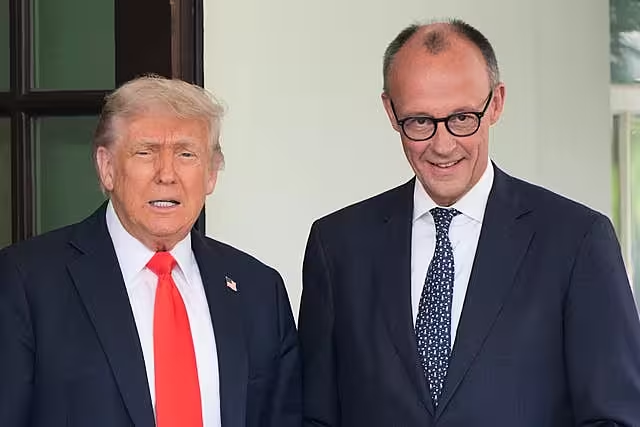
German Chancellor Friedrich Merz said his meeting with President Donald Trump had convinced him of the US administration's readiness to discuss key issues.
Mr. Merz described his Oval Office conversation and lunch with Mr. Trump on Thursday as constructive and frank, saying the two leaders had demonstrated different views on the situation in Ukraine.
He said: “During our meeting in the Oval Office, I presented a completely different position on the Ukraine issue than Trump had voiced, and not only was there no objection, but we discussed it at length over lunch.”
This meeting at the White House was the first personal meeting between the two leaders.
Mr Merz, who became chancellor in May, has sought to avoid the Oval Office confrontations that have arisen with other world leaders, including Volodymyr Zelensky of Ukraine and Cyril Ramaphosa of South Africa.
The German chancellor presented Mr Trump with a gold-plated copy of the birth certificate of the president's grandfather, Friedrich Trump, who emigrated from Kallstadt, Germany.
Mr Trump described Mr Merz as “a nice guy to be around.”
According to Mr. Merz, the US administration is open to dialogue, ready to listen and take into account different opinions.
He added: “Let's stop talking about Donald Trump with a judgmental tone and a disgruntled expression. We should be talking with him, not about him.”
Mr. Merz also said he had met with senators on Capitol Hill and urged them to pay attention to the scale of Russia's rearmament.
“Please look at how far Russia's armament has advanced and what they are doing now; you obviously don't understand what is going on,” he told them.
“In general, you can talk to them, but don't let them intimidate you. I don't have that tendency anyway.”

Mr Merz, who speaks fluent English, stressed the importance of transatlantic trust and reminded Mr Trump of the importance of allies.
“Whether we like it or not, we will be dependent on the United States of America for a long time to come,” he noted.
“But you also need partners in the world, and the Europeans, especially the Germans, are the most suitable allies.
“That's the difference between authoritarian systems and democracies: In authoritarian systems, there are subordinates. In democracies, there are partners – and we strive to be those partners in Europe and with America.”
Sourse: breakingnews.ie






